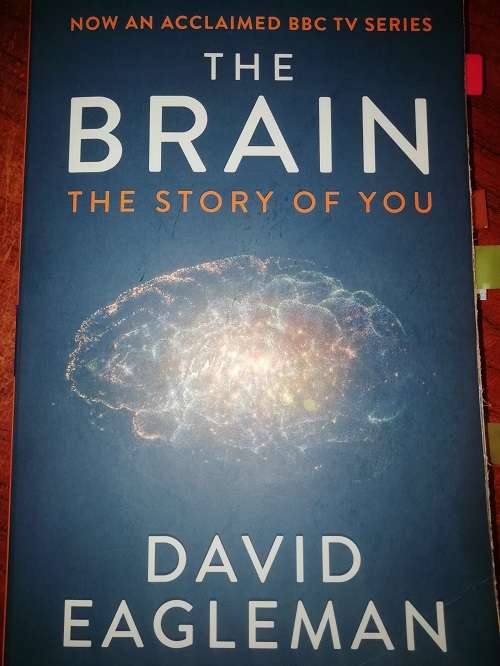
“To be yourself in a world that is constantly trying to make you something else is the greatest accomplishment,” Ralph Waldo Emerson.
Loving thyself is knowing thyself with no bounds. I have always wanted to know my real self, but didn’t know where or how to do it. On the 13th March 2018, I went to Van Schaick Bookstore looking for pencil refill, but I found something more interesting than what I wanted
“The Brain: The Story of You” is a neuroscience novel authored by David Eagleman. I finished reading the book 5 minutes after I purchased it. How? I read the covers of the book. Every page of this book stripped naked as understanding of self was simmering.
I strapped in for a whistle-stop tour into the inner cosmos. While I was there, in the infinitely dense tangle of billions of brain cells and their trillions of connections, I was able to squint and made something out that I had never expected to find. That was ‘ME’. I was excited and frustrated at the same time, because the thrill of self-discovery was about just right on the spot.
I’ve always had people defining and dictating who I am. The truth is that nobody does it right because nobody knows who you are. I nearly relented to people’s assumptions of who I am because I also didn’t know myself. But my encounter with this book, “The Brain: The Story of You” turned around the tables for a better me.
This book is my best friend, my favourite mirror with which I reflect upon myself every day for as long as it allows me to step outside my door and walk that heavy mile. Although they say, “Don’t look for yourself for too long in the mirror, for you might lose yourself”. In this book, it’s where I will feel safe if I get lost in it.
Who I am at any given moment depends on the detailed rhythms of my neuronal firing. During the day, my conscious self emerges from that integrated neural complexity. And at night, when the interaction of my neurons changes a little bit, I disappear. Everybody has to wait until morning when the neurons let the wave die and work themselves back to their complex rhythm. That’s when I return. This simply means that no one, no words and no description of who I am makes me, me. Only my neuronal firings are capable of that.
Who I am, who you are, depends on what our neurons are up to every moment. Whatever that people say about me is only a thought of them of who I am, it’s not actual. I’ve learned to never relent to people’s thoughts of who I am, because that’s not me. This is the greatest lesson I have learned from this book, the power of the most unused muscle of man, the brain. I’m currently reading this book for the 23rd time now.
